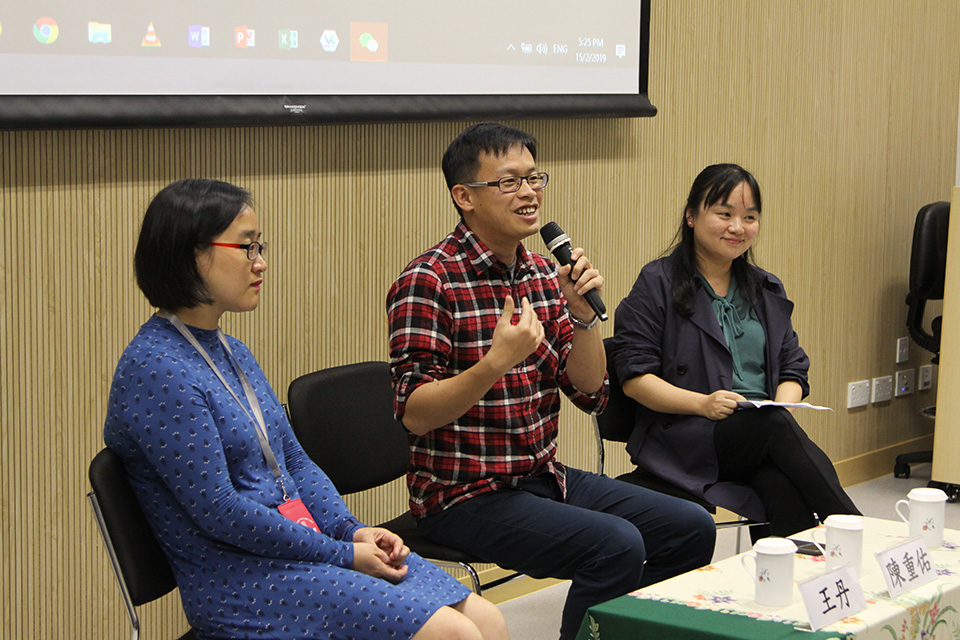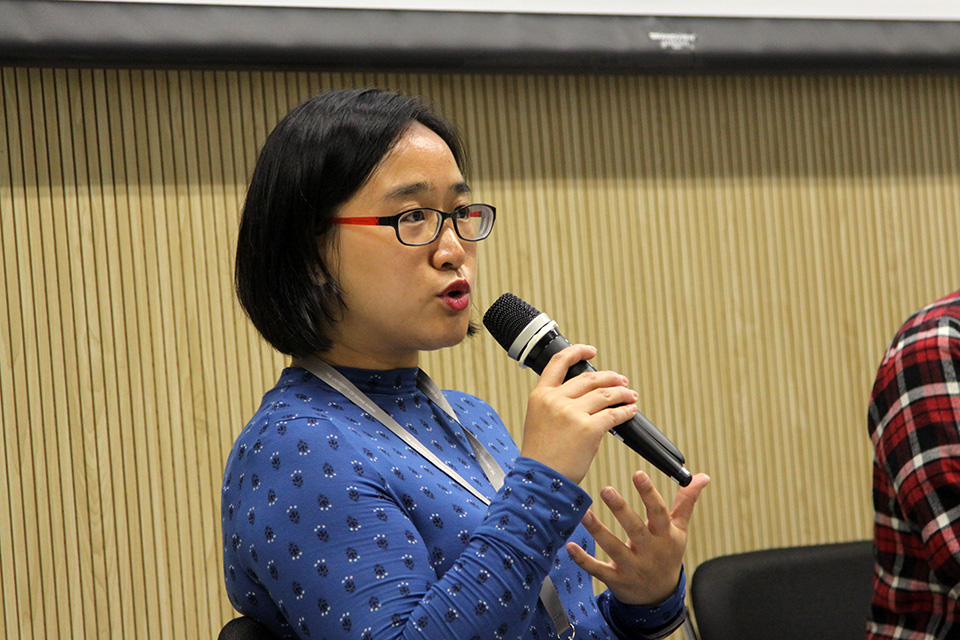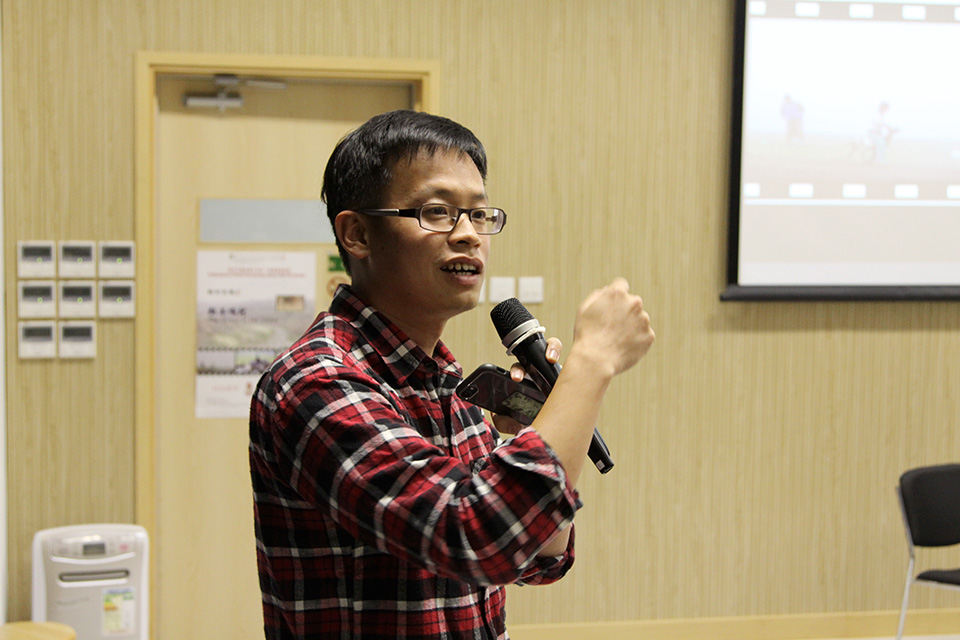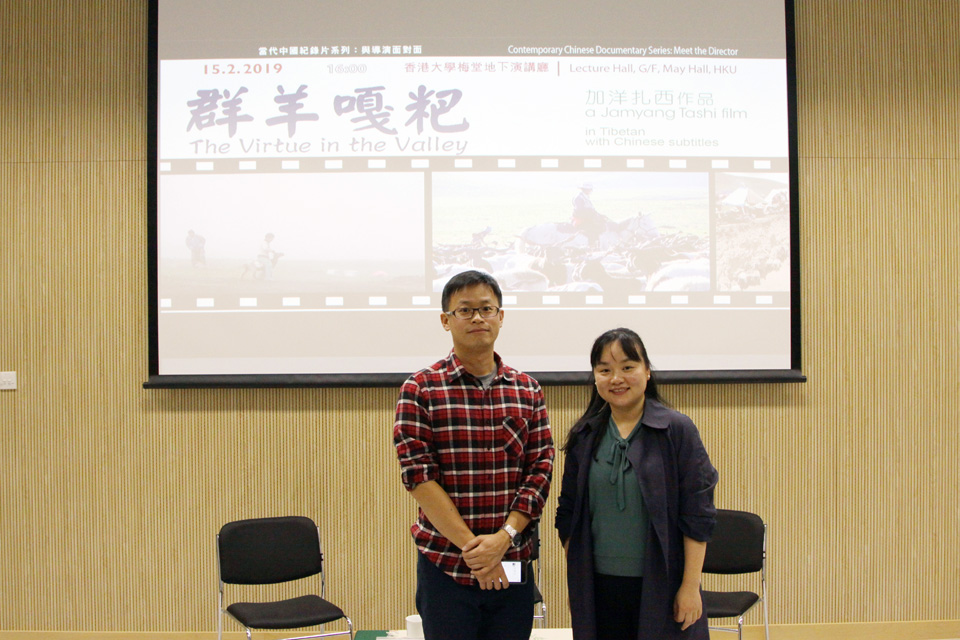- ABOUT HKIHSSABOUT HKIHSS
- PEOPLE
- NEWS & EVENTSNEWS & EVENTS
- RESEARCHRESEARCH
- FELLOWSHIPS & GRANTSFELLOWSHIPS & GRANTS
- TEACHING & LEARNINGTEACHING & LEARNING
- PUBLICATIONSPUBLICATIONS
Contemporary Chinese Documentary Series: Meet the Director
The Virtue in the Valley a Jamyang Tashi’s film (Tibetan dialogue, Chinese subtitles)
In the vast grassland, cattle and sheep often get lost during grazing. The herdsman who find them usually take the animals home and feed them until they gather enough to send to Gaba, or the river ridge in Tibetan. In Gaba, the lost cattle and sheep will be reclaimed according to a set of strict rules of recognition. The herdsmen can recognize their own cattle and sheep in thousands of animals. After the recognition, they must thank the people who took care of the lost animals followed by a ritual of swear of honesty. This traditional practice is based on the norms of oral communication, rooted in people’s inner good and goes beyond the law.
Date: 15 February 2019 (Friday)
Time: 16:00 (15:30 – Reception; 16:00 – Film Screening; 17:10 – Discussion)
Venue: Lecture Hall, G/F, May Hall, HKU
Discussion with Director Jamyang Tashi, and Supervisor Chen Chung-yu (in Putonghua)
Enquiries: 3917 5772 | [email protected]
Contemporary Chinese Documentary Series: Meet the DirectorContemporary Chinese Documentary Series: Meet the Director
The Virtue in the Valley a Jamyang Tashi’s film (Tibetan dialogue, Chinese subtitles)
In the vast grassland, cattle and sheep often get lost during grazing. The herdsman who find them usually take the animals home and feed them until they gather enough to send to Gaba, or the river ridge in Tibetan. In Gaba, the lost cattle and sheep will be reclaimed according to a set of strict rules of recognition. The herdsmen can recognize their own cattle and sheep in thousands of animals. After the recognition, they must thank the people who took care of the lost animals followed by a ritual of swear of honesty. This traditional practice is based on the norms of oral communication, rooted in people’s inner good and goes beyond the law.
Date: 15 February 2019 (Friday)
Time: 16:00 (15:30 – Reception; 16:00 – Film Screening; 17:10 – Discussion)
Venue: Lecture Hall, G/F, May Hall, HKU
Discussion with Director Jamyang Tashi, and Supervisor Chen Chung-yu (in Putonghua)
Enquiries: 3917 5772 | [email protected]
Contemporary Chinese Documentary Series: Meet the DirectorTitle:
The Virtue in the Valley (群羊嘎粑)
Date:
February 15, 2019
Venue:
Lecture Hall, G/F, May Hall, The University of Hong Kong (Map)
Rundown:
| 3:30 pm | Reception |
| 4:00 pm | Film screening |
| 5:10 pm | Discussion with Director Jamyang Tashi, and Supervisor Chen Chung-yu |
Language:
| Film screening: | Tibetan dialogue, Chinese subtitles |
| Discussion: | Putonghua |
Enquiry:
(Tel) (852) 3917-5772
(Email) [email protected]
In the vast grassland, cattle and sheep often get lost during grazing. The herdsman who find them usually take the animals home and feed them until they gather enough to send to Gaba, or the river ridge in Tibetan. In Gaba, the lost cattle and sheep will be reclaimed according to a set of strict rules of recognition. The herdsmen can recognize their own cattle and sheep in thousands of animals. After the recognition, they must thank the people who took care of the lost animals followed by a ritual of swear of honesty. This traditional practice is based on the norms of oral communication, rooted in people’s inner good and goes beyond the law.
This film is supported by “From Our Eyes (FOE)”, a non-profit organization that supports indigenous audiovisual creation. The film director is a graduate from the Jigme Gyaltsen Vocation School for Ethnicities, which is the first private welfare school in Qinghai province and located in Golog Tibetan Autonomous Prefecture.
在廣大的草原放牧,過程中,總會有走失的牛羊,草原上的人們,並不會將這些牛羊占為己有,帶回家中草場僅代為收養,時間一到,人們會將家中不屬於自己牛羊集中起來,送到嘎粑﹝藏語,河坎之意﹞。這流傳上百年的傳統,在這片草原仍實踐著。丟失的牛羊有一套縝密的認領規則,牧民們能在千百隻牲畜中認出自己家的牛羊,認領後必須對幫忙照顧的人家致上感謝,包括支付贍養的草費,甚至母羊再生出小羊的所有權,都有詳細的規定,若仍有未被領回的牛羊,牧民間再抽籤,依順序領回額外的牛羊或馬匹,不得有異議。參與的人都必須起誓,不得有說謊、強佔的行為。這僅靠口傳的規範,真正從淳善出發,超越了法律,至今仍執行著。
本片受「鄉村之眼」公益影像行動計劃支持,是青海果洛吉美堅贊民族職業學校影視專業班優秀畢業作品。




Copyright © 2023 Hong Kong Institute for the Humanities and Social Sciences, The University of Hong Kong. All Rights Reserved.